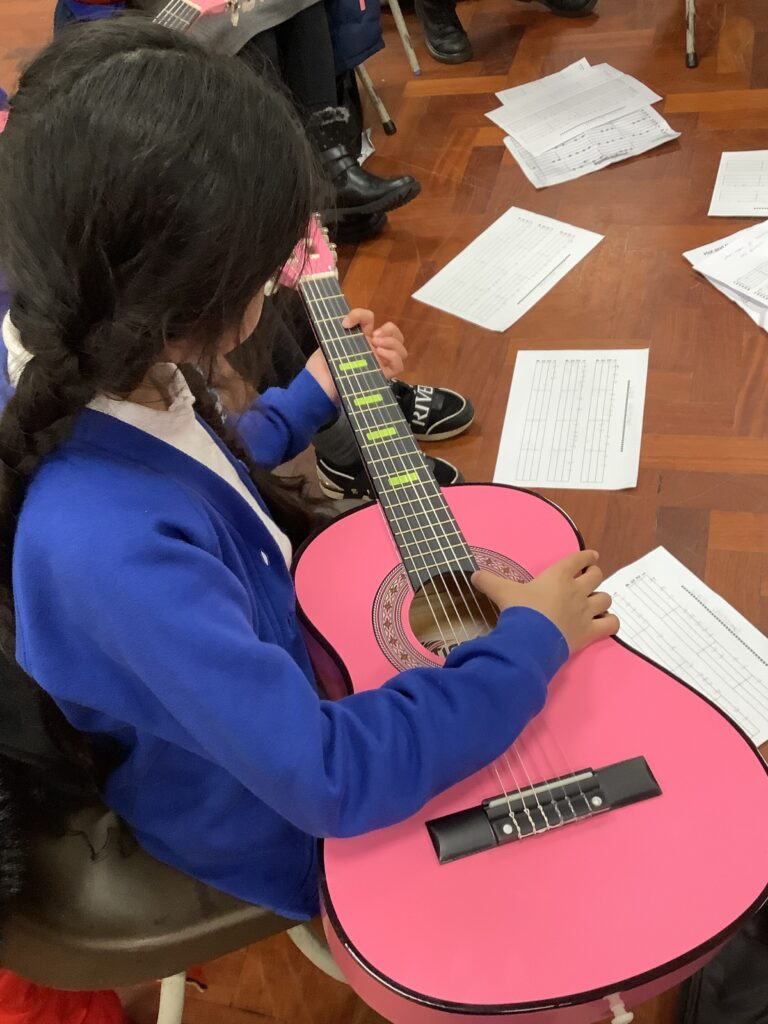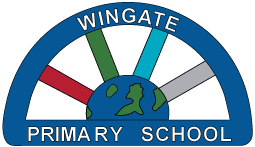Our Intent, Implementation and Impact Statement for Music
The rights and dignity of our children are at the heart of everything we do, every decision we and they make and every driver for making progress and helping our children to develop as responsible, valued global citizens who want to make a positive contribution to their and our world.
In our school it is our intent that we help children to develop resilience, perseverance, autonomy and focus. Our children learn that they are valued and valuable, they are independent people in their own right and they have the power to do wonderful, amazing things at every stage of every day.
Every one of our children is a unique individual with their own strengths, aptitudes, interests and dreams. As a school community we will endeavour to support each child to make the most of every opportunity we offer.
We provide enriching experiences to engage learners and in designing and developing our curriculum we have taken into consideration
- how children learn and remember; progress means knowing more and remembering more
- what our children need to succeed in life; the cultural capital they need to make aspirational choices and succeed beyond their time at Wingate Primary School.
The key drivers for our curriculum are:
Ambition and aspiration
Resilience and courage
Autonomy and independence
Perseverance and solution finding
Intent Statement
Music is a fundamental form of creativity and holds value and importance in the wider community and across the world as an international language. In Wingate Primary School we believe music develops self-confidence, creativity and imagination. Music education at our school promotes a life-long love of music, and opportunity for self-expression and personal achievement, led by children’s interests. We believe that all pupils should have the opportunity to develop talent and interest in a wide range of musical skills (including singing, performance, improvisation, composition, musical appreciation and the history of music), and through a diverse range of musical genres from different eras and cultures.
Implementation
Music in our school is planned and delivered to ensure high standards of teaching and learning in music and progression across the whole school.
We have planned Music to ensure that our school gives full coverage of, ‘The National Curriculum programmes of study for Science 2014’ and, ‘Expressive Arts and Design’ in the Early Years Foundation Stage. Music is taught widely using Charanga Musical School and also through external music teachers, as weekly lessons to ensure coverage.
At Wingate Primary School, class teachers and external music teachers promote a positive attitude to music learning and always ensure they encourage high expectations for our children’s learning and engagement in music. Our whole school approach to the teaching and learning of music involves the following;
- Pupils learn music through the strands of: listening and appraising, knowledge and understanding of musical language, the history of music, singing, playing instruments, improvisation, composition, performance and musical notation. These strands often interweave and are almost all covered every half term across all year groups. Musical vocabulary is introduced and instilled through direct teaching and regular use of this language.
- Progression is developed through the repetition and depth of learning within the strands of music. This through the integration and understanding of the interrelated dimensions of music, including: pulse, rhythm, pitch, dynamics, tempo, timbre, structure, texture and notation. Throughout each year and across all year groups, the interrelated dimensions of music are built upon the foundation of pulse, creating a spiral of musical learning across the school.
- Every child has the opportunity to learn a musical instrument through whole class lessons with an external music teacher, including from the Durham Music Service. These instrumental and singing lessons capture children’s enjoyment of music, build on musical skills and knowledge and inspire further music making.
- Our music teaching exposes pupils to a diverse range of musical genres and musicians, across history and different cultures. Further experience of music genres, especially traditional music, is found in cross-curricular lessons (including Languages and PE) and during specific-themed weeks where the music can be related fully to the country it was created and played in. In doing this, our children gain a broad view of different cultures and their music, making it more meaningful to the children.
- Musical enhancements such as children’s performances, external musicians’ performances and extra-curricular music clubs inspire and excite our children about music and also provide the cultural capital to ignite their aspirations.
Vocabulary
At Wingate Primary School we want to promote an engaging Music curriculum that expands our children’s musical vocabulary. This is essential to the successful acquisition of knowledge and understanding in music. Children have access to key knowledge, language and meanings to understand music and to complement all musical skills across the curriculum.
Key Musical language is used throughout, revisited regularly and built upon during their time a Wingate Primary School. It is cumulative and is acquired by regular repetition. This is to embed this vocabulary into musical learning whilst also narrowing the vocabulary gap for our children. It is our intent that by the end of each year, the majority of children working at expected will be able to use or define most of the vocabulary used in their year group.
The tables below show the Music vocabulary to be taught from Reception to Year 6. The first table shows the Music vocabulary used in each year group. The second table shows this divided into half terms. As a school we aim to expose all children to a broad range of vocabulary and provide them with the skills to use and apply these.
Music Vocabulary Overview by Year Group
Music Vocabulary Overview in Half Terms
Impact
At Wingate Primary School the impact of our music curriculum is that children enjoy music and are therefore engaged and inspired in their music making. Our children utilise their musical skills, knowledge and vocabulary in order to further develop their music making and understanding of music. They gain experience and understanding in all areas of music and a diverse range of musical genres so that they can develop a lifelong valuable appreciation for and enjoyment of music. At our school they are provided with the musical foundations to enhance their musical interests and education, as young musicians.
Pupil Voice
“I really like singing with Danielle, it’s my favourite cause you don’t stop talking and I like talking.” Jaimie
“I like the chime bars because we play good tunes. Last time we played 3 notes A, B, C.” Stacey
“I’m looking forward to playing the steel pans because I liked the sound of them, they were quite loud but it was a relaxing sound.” Holly
“I enjoyed playing the steel pans because the different letters on the different parts of the drum make different sounds and some drums only make one sound.” Grace
“I like drumming in school because I love drumming different rhythms and playing with the drumming club at lunchtime. I can play the same rhythms on the glockenspiels but using different notes.” Hope
“My favourite thing about music is that it’s got infinite possibilities. It’s fun to explore different types of music because there’s such a vast variety, and also you can compose your own music and you could even become a professional musician. I like how you can try lots of different instruments and see which ones you like and also music doesn’t have to be just on an instrument.” Rowan
“I like playing the trumpet because I was inspired by year 6 when I was in year 4. There are three things you need to be a trumpet player: the right lip position, know how to read music and practise. Sometimes I have trouble with reading the music but I really enjoy challenging myself and playing lots of different songs.” Josh
Celebrating Music





















